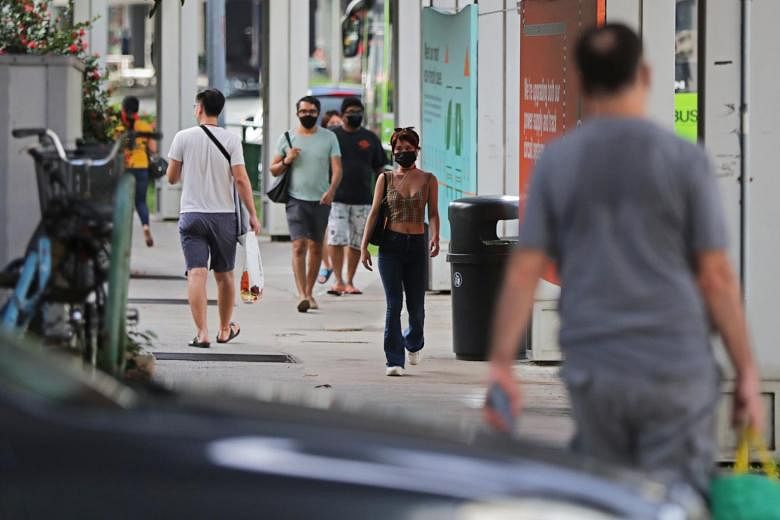The few positive coronavirus cases found among nursing home residents and pre-school staff indicate that a large proportion of Singapore's population is still susceptible to the virus, public health experts said.
The nursing home cases are a particular cause for concern, they added, given that infected seniors have a higher chance of develo-ping complications.
The Health Ministry announced on Thursday that four residents at Orange Valley Nursing Home in Simei had contracted the virus. Five staff from pre-schools in various locations were also found to be infected following extensive testing.
As of Wednesday, more than 10,200 of the 16,000 nursing home residents had been tested for the virus. All were negative except for the four Orange Valley residents.
The Early Childhood Development Agency said on Thursday that about 10,400 of the 30,000 pre-school staff have tested negative so far.
"Any case detected in a nursing home is a source of concern because of the potential of spread through the home," said Associate Professor Hsu Li Yang, programme leader for infectious diseases at the National University of Singapore's Saw Swee Hock School of Public Health.
This group of patients is vulnerable and may develop severe disease or die as a consequence of contracting Covid-19, he added.
Ms Kitty Lee, who heads the health and life science practice at consultancy firm Oliver Wyman, said the jury is still out on whether the risk of Covid-19 transmission is higher in pre-schools and other educational institutions.
"The challenge with pre-schools is that it is hard to enforce safe distancing and sanitary measures with younger students, compared with older students who are more aware of these measures," Ms Lee said.
She added that this means Singapore should continue to regularly test staff and be ready to consider additional measures to prevent the virus from spreading in this setting, should the need arise.
Professor Teo Yik Ying, dean of the Saw Swee Hock School, said the test results so far indicate that the vast majority of pre-school and nursing home staff, as well as nursing home residents, are virus-free.
"My interpretation is that a large part of the population in Singapore remains susceptible and naive to the infection, and the transmission in the community is actually very much controlled," he added.
To paint a fuller picture of the Covid-19 situation here, pooling test samples to expand testing capacity or making use of serology tests could be useful, the experts said.
The former is where a group, such as members of one household, can contribute samples to be pooled into a single test. Serology tests, unlike polymerase chain reaction tests which pick up traces of the virus, look for antibodies that indicate a person has been infected.
"Given Singapore's success in containing the spread of the virus, this is likely to be very low except among foreign workers living in dormitories," Prof Hsu said, referring to the percentage of people here already infected.












